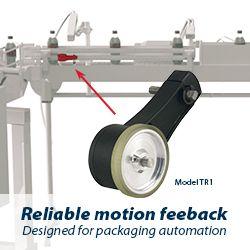Evana Automation to Design and Build a Turnkey Assembly System for a Major Manufacturer of Commercial Vehicle Systems
The solution will improve quality and process time for assembling and testing Driver Control Modules
EVANSVILLE, Ind., Dec. 8, 2015 -- Evana Automation Specialists, a leading Systems Integrator and builder of custom, automated assembly and test systems, recently received a contract to design and build a turnkey assembly system for a major manufacturer of commercial vehicle systems. Evana's customized solution will improve quality and process time for assembling and testing Driver Control Modules (DCMs), as well as provide the flexibility to easily adapt for future DCM models.
The assembly process will begin when an Automated Guided Vehicle (AGV) tows a fixture/kit cart into a supermarket area that stores many of the components that make up a completed module. Large components are stored in dunnage at each assembly station. A Manufacturing Execution System (MES) will provide the build components list to area monitors to let an operator know what components need to be loaded onto the fixture/kit cart. As the components are loaded, they are scanned to confirm the correct quantity and model. The cart is also scanned. This process validates the kitted components and links them to the ID of the cart. When the MES system is satisfied that the cart is loaded correctly, a move command is sent to the AGV. The AGV will tow the cart into the first of eight assembly stations. Each assembly station will have a monitor that displays each step of the build procedure to the operator. When the tasks at the first assembly station are complete, the AGV moves to the second assembly station, where the build process continues. Some of the stations will have pressing functions, where force and distance are captured. Other stations will include screw driving and harness assembly.
When the AGV leaves the last assembly station, it tows the fixture/kit cart to one of two test stands. The AGV will automatically dock with the test stand. The operator will connect all air and electrical connections and initiate the test cycle. The DCM will be tested according to the test criteria instructions received from the MES system. Once the test cycle is complete, the DCM will be stamped with a pass indicator. Failed assemblies will be reworked by the operator and retested.
The Evana assembly system is scheduled for a May 2016 delivery.
"The turnkey system from Evana provides a flexible platform for the assembly, testing and validation of the customer's Driver Control Modules," said Randy Wire, general manager of Evana Automation Specialists. "The system not only improves quality and process time, but it can be easily adapted for future product models."
Evana, a subsidiary of Phillips Service Industries (PSI), utilizes diverse technologies to specialize in motion control, robotics integration, welding integration and system architecture by linking production equipment, material handling systems, data collection, networking, as well as computer software and hardware into flexible, unified technology. Test equipment can be integrated into assembly systems, stand-alone systems for automatic testing, or manual test benches. Overall, Evana's custom assembly and test solutions improve efficiency for manufacturers all over the world in industries like automotive, aerospace, defense, healthcare and alternative energy, as well as manufacturers of commercial and consumer products.
For more information about Evana Automation Specialists, visit www.evanaautomation.com. You can also follow Evana on Facebook, Twitter, Google+, LinkedIn and YouTube.
Featured Product

